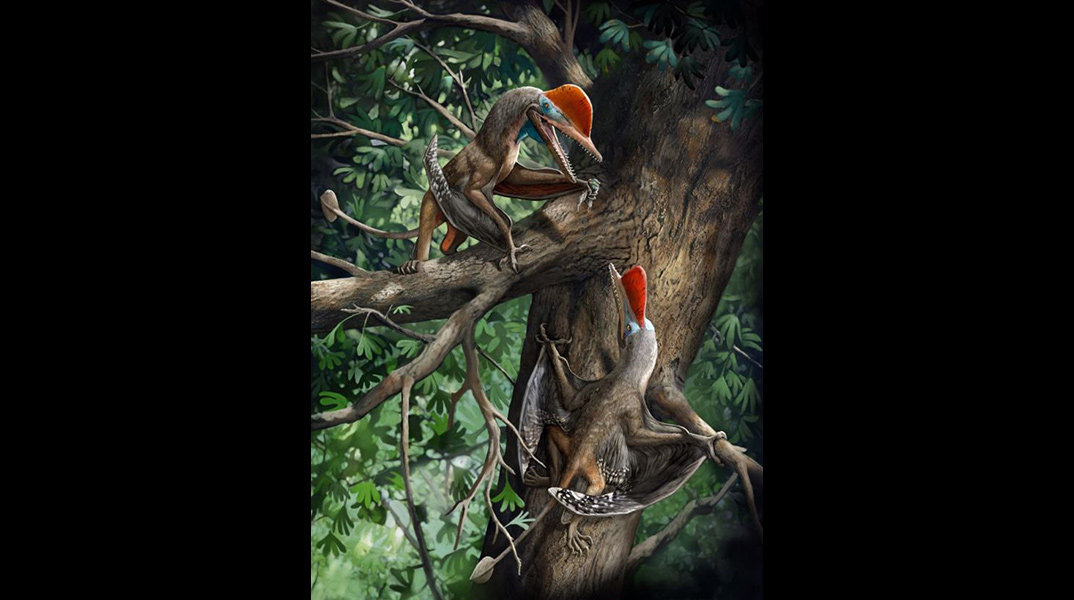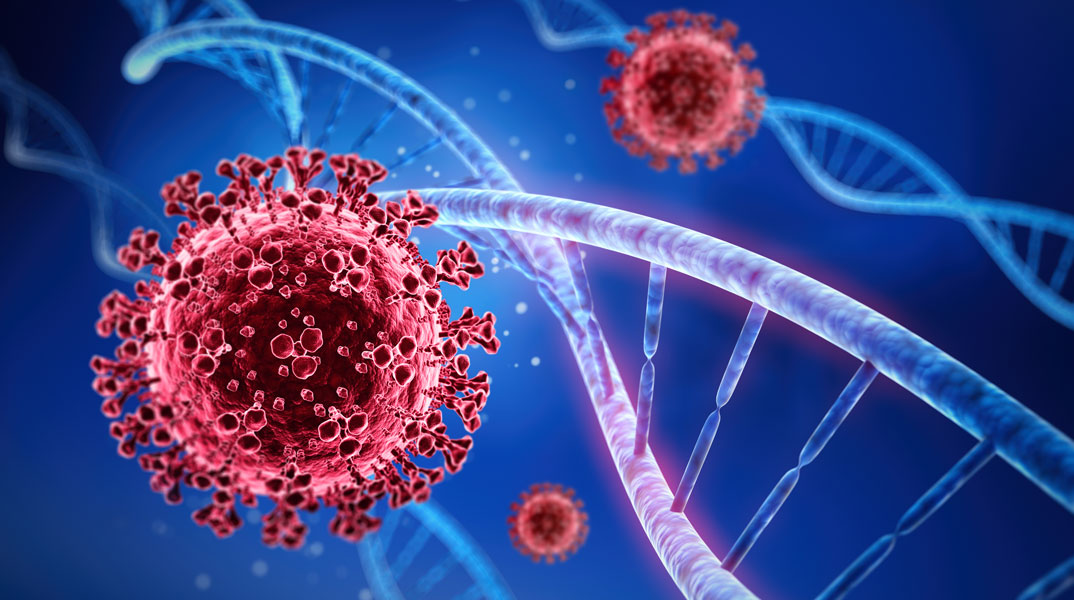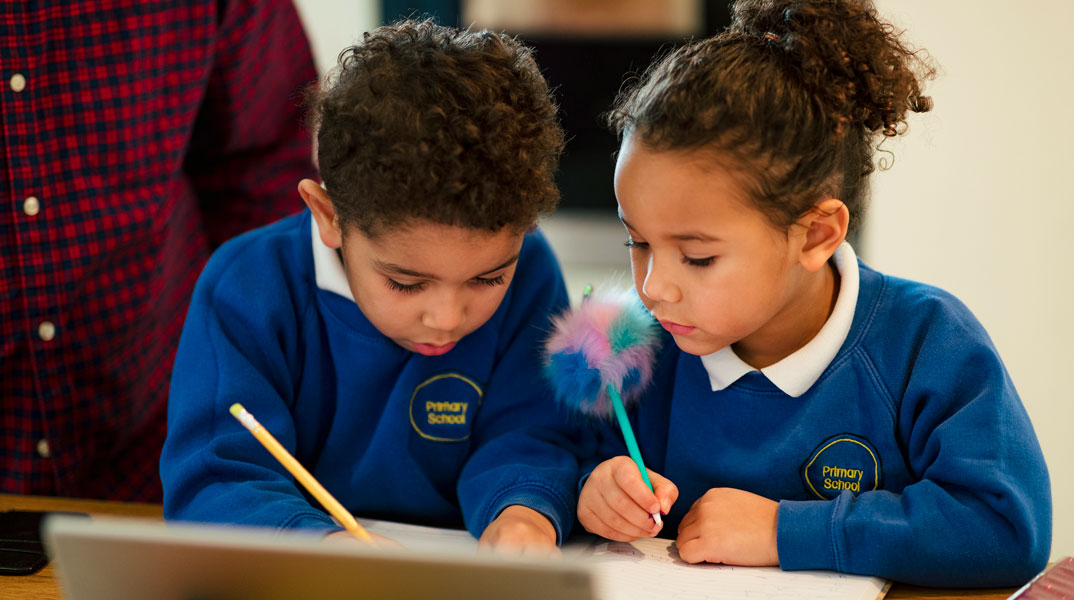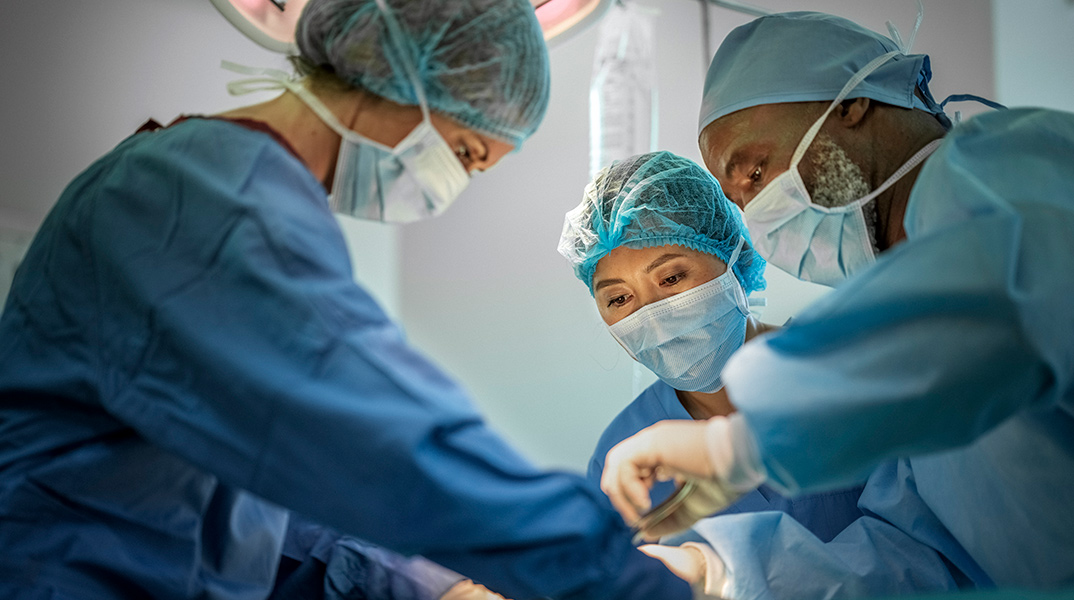The latest news and developments from the University of Birmingham for autumn 2021.
-

Get a grip
A newly discovered pterosaur that lived 160 million years ago was also the first animal on Earth to have a true opposed thumb, according to an international team of researchers.
The flying reptile, informally named "Monkeydactyl", was found in the Tiaojishan Formation of Liaoning, China, an area known for its exceptionally preserved fossils.
The team of academics – including researchers from the University of Birmingham – found the specimen had an opposed thumb on both hands and named it Kunpengopterus antipollicatus, with species name 'antipollicatus' meaning 'opposite thumbed'.
Their research, published in journal Current Biology, suggests the species could have used its hand for grasping, most probably to live in trees, which is also a first.
Fion Waisum Ma, PhD researcher at Birmingham, explains: 'The fingers of "Monkeydactyl" are tiny and partly embedded in the slab [of rock where it was found]. Thanks to micro-CT scanning, we could see through the rocks, create digital models and tell how the opposed thumb articulates with the other finger bones.' -

Call for end of postcode lottery in miscarriage and treatment
Leading experts at Birmingham and Tommy’s National Centre for Miscarriage Research have, in a series of articles published in The Lancet, called on the UK government to invest in early pregnancy units and recurrent miscarriage clinics to end the postcode lottery in current care and treatment.
An estimated 23 million miscarriages occur every year worldwide – equating to 44 pregnancy losses each minute. The consequences of miscarriage are both physical, such as bleeding or infection, and psychological.
Miscarriage almost quadruples the risk of suicide, doubles the risk of depression, and similarly raises the risk of anxiety. Previous studies showed that one in five mothers and one in 12 partners experience long-term symptoms of post-traumatic stress after loss.
Arri Coomarasamy, Professor of Gynaecology & Reproductive Medicine at the University and Director of Tommy’s National Centre for Miscarriage Research, says: 'Despite the many advances in miscarriage research and care, we have many more avenues to investigate – for example, we need to understand why there is a higher rate of miscarriage in black women and why miscarriage is associated with an increased future risk of premature birth.'
Find out more about the University’s research and look out for an upcoming webinar with Arri. -

World's leading COVID-19 sequencing
A system developed at the University proved the most sophisticated genome sequencing programme for COVID-19 in the world.
The CLIMB-COVID system, utilising new bioinformatics software and cloud computing, was designed and built by researchers in under a month and processed the sequencing data of more than 675,000 coronavirus genomes.
All data from the project was integrated and shared in real-time, enabling the early detection and evaluation of variants of the virus. -

Major funding for youth mental health research
The University’s Institute for Mental Health has received a £1.5 million grant from the Wolfson Foundation to fund a research centre focused on supporting youth mental health.
Professor Matthew Broome, Director of the Institute for Mental Health, says: 'We are extremely grateful to the Wolfson Foundation for supporting our work through this new centre at the University.
'It will create a new space for researchers, postgraduate students, NHS colleagues and our youth advisory group to come together more effectively. We hope this will provide the scientific environment and conditions that the Institute needs to accelerate our work to support and treat young people with mental ill health.' -

Read all about it
University researchers are studying the language young people use in stories thanks to a partnership with the National Literacy Trust.
As part of Birmingham Stories, a campaign to spread awareness of the importance of storytelling and literacy at every stage of life, entries to a story writing competition for nine to 14-year-olds on the theme of Water Stories will become part of the Birmingham Stories Corpus (BSC).
Author Sita Brahmachari will lead a judging panel made up of Birmingham role models and writing experts. The first place winner in Birmingham will receive a visit from Sita to their school.
The top three winning stories will be published on the University and Birmingham Stories websites. -

Full steam ahead
A new purpose-built centre for specialist research in railway engineering has been opened by the Minister of State for Transport, Andrew Stephenson.
The Centre of Excellence for Digital Systems brings together existing academic and industry capabilities to enable high quality, fast-paced research through proof-of-concept to demonstration and testing.
Created thanks to a partnership between the University and the UK Rail Research and Innovation Network (UKRRIN) with investment from Research England, facilities include cab simulators, and a signalling control centre, as well as project labs and other technologies. -

Revolutionary material for trauma recovery
Researchers at Birmingham have confirmed the viability of an artificial tissue 'scaffold' to promote tissue healing in humans following surgery or physical trauma.
Formed from a 3D printed resin 'ink', the scaffold material has shown highly promising results, including being able to support cell migration and blood vessel growth.
The research, led by the University's Professor Andrew Dove, also demonstrated that the scaffolds were non-toxic and will slowly and harmlessly degrade, allowing sufficient time for tissue to grow in place of the scaffold.
The scaffolds could replace current approaches used to fill soft tissue voids that remain after injury or surgery, and demonstrated elasticity to fit in irregular spaces.